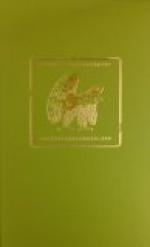Afterwards, while they were having coffee with the station master, Daniels asked Banks how he and Tisdale happened to be at Cascade Tunnel. “I was putting in a little time at the Springs,” Banks responded, “but Hollis was a passenger on the stalled train. He took a notion to hike down to the hotel just ahead of the slide.”
“You mean that man who has taken charge out there,” exclaimed the operator. “I had a talk with him before he started; he was rigging up some snowshoes. He said he was from Alaska, and I put him down for one of those bonanza kings.”
“He is,” said Banks in his high key. “What he don’t know about minerals ain’t worth knowing, and he owns one of the finest layouts in the north, Dave Weatherbee’s bore.”
“The Aurora mine,” confirmed Daniels. “And I presume there isn’t a man better known, or as well liked, in Alaska.”
Banks nodded. “Dave and him was a team. The best known and the best liked in the whole country. And likely there’s men on the top seats in Washington, D.C., would be glad of a chance to shake hands with Hollis Tisdale.”
“I knew he was somewhere near the top,” commented the operator. “He can handle men. I never saw such a fellow. Why, he must have got half-way to the Springs when the slide started, but he was back, climbing up along the edge of it to the wreck, almost before it quit thundering. And he took out a live baby, without a damage mark, and all its folks lying right there dead, before the rest of us got in earshot.”
Daniels put down his sandwich and took out his neglected notebook. He gathered all the detail the ready operator could supply: how Tisdale had wrapped the child in a blanket and carried him from place to place, talking to him in his nice, friendly way, amusing him, keeping him quiet, while he worked with the strength of two men to liberate other survivors. And how, when none was left to save, he had taken the baby in his arms and gone to break trail to the Springs to send out news of the disaster. All that the station master and Banks could not tell him, with the name and prominence of Joey’s family, Jimmie added later at the chalet, and he finished with a skilful reference to the papoose, killed by accident so many years before. It was a great story. It went into the paper as it stood. And when the day came to leave the Press office, the chief, shaking hands with his “novelist,” said it was a fine scoop, and he had always known Jimmie had it in him to make good; he was sorry to lose him. But the Society Editor, reading between the lines, told him it was the greatest apology he could have made. She was proud of him.
At Vivian Court late that afternoon, Elizabeth read the story to Beatriz Weatherbee. Her couch was drawn into the sunny alcove, where, from her pillows, she might watch the changing light on Mount Rainier. Finally, when Elizabeth finished, Beatriz broke the silence. “He must have passed down the canyon while we were there.”




